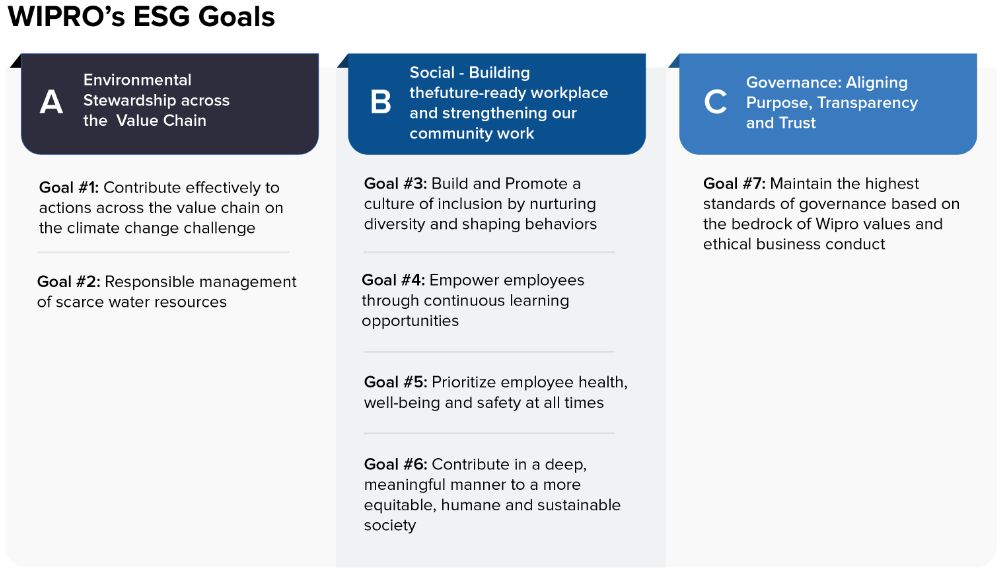Wipro’s sustainability program is founded on a robust materiality exercise, conducted with extensive stakeholder engagement. It involves collaborating with stakeholders to identify and prioritize ESG concerns relevant to a company. The primary aim is to pinpoint the company's greatest risks before exploring opportunities. Utilizing standards like SASB (Sustainability Accounting Standards Board) and GRI (Global Reporting Initiative), organizations can better manage their impact, mitigate risks, and uncover new opportunities. This process ultimately enhances financial resilience, efficiency, and fosters a healthier, more harmonious workplace.
Wipro's Materiality Excercise .



